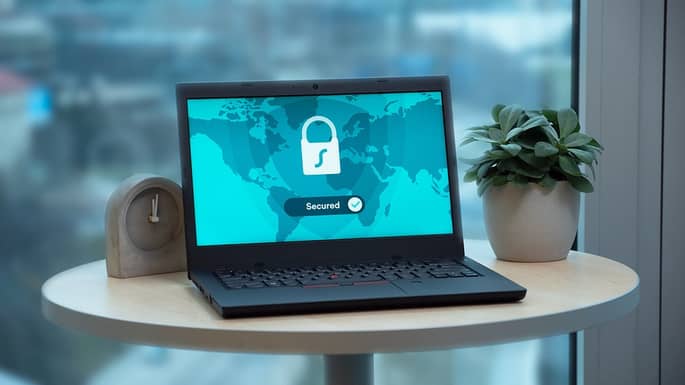Demystifying VPNs: An Overview of Privacy Laws and Regulations

In a world where online privacy is becoming increasingly important, VPNs have emerged as crucial tools for protecting our personal data. But with so many laws and regulations surrounding the use of vpn, it can be daunting to navigate this complex landscape. In this blog post, we will break down the ins and outs of privacy laws and regulations related to VPNs, providing you with everything you need to know to stay safe and secure online. Let’s demystify VPNs together.
Understanding Privacy Laws

Privacy laws and regulations governing VPN usage vary significantly across jurisdictions, making it essential for users to understand the legal landscape in their respective countries. Some countries have stringent data protection laws that prioritize user privacy and impose strict regulations on data collection, retention, and sharing. In contrast, others may have more relaxed privacy laws or even laws that infringe upon user privacy rights.
Data Retention Laws
Many countries have data retention laws that require internet service providers (ISPs) and telecommunications companies to retain user data for a certain period. VPN providers may be subject to similar data retention requirements, depending on the jurisdiction in which they operate. Users must be aware of data retention laws in their country and choose VPN providers that have strict no-logs policies to minimize data exposure.
Surveillance Laws and Government Oversight
In some countries, government surveillance laws grant authorities broad powers to monitor internet traffic and intercept communications for national security purposes. VPN usage may be subject to scrutiny or regulation in such jurisdictions, with authorities seeking to maintain surveillance capabilities while balancing security and privacy concerns. Users should be aware of potential government oversight and choose VPN providers that prioritize user privacy and transparency.
Intellectual Property and Copyright Laws
VPN usage can also intersect with intellectual property and copyright laws, particularly concerning digital piracy and copyright infringement. While VPNs themselves are not inherently illegal, their anonymity features can be exploited for illegal activities such as accessing copyrighted content without authorization. VPN providers may face legal challenges or pressure from copyright holders to take action against users engaged in piracy.
General Data Protection Regulation (GDPR)

The General Data Protection Regulation (GDPR) sets stringent standards for data protection and privacy rights in the European Union (EU). Under the GDPR, individuals have the right to control their data and must consent to its collection, processing, and storage. VPN providers operating within the EU must comply with GDPR requirements and ensure that user data is protected and handled in accordance with the law.
Compliance and Transparency
When selecting a VPN provider, it’s essential to choose reputable providers that prioritize compliance with relevant privacy laws and regulations. Look for VPN providers that have transparent privacy policies, robust security measures, and a commitment to protecting user privacy. Additionally, consider factors such as jurisdiction, data retention policies, and logging practices to ensure that your chosen VPN provider aligns with your privacy preferences and legal requirements.
In conclusion, understanding the legalities of VPNs is essential for users seeking to protect their online privacy and security while staying compliant with applicable laws and regulations. Privacy laws vary across jurisdictions, and users must familiarize themselves with the legal landscape in their country to make informed decisions about VPN usage. By choosing reputable VPN providers, exercising caution when accessing copyrighted content, and staying informed about privacy rights and obligations, users can navigate the legal landscape of VPNs with confidence and peace of mind.…


 emporary settings are epitomized by the use of the internet. The business world has witnessed incorporation of the internet in operations thanks to significant advancements in the Information and Communication Technology (ICT) sector. These mechanisms have effectively outdone the traditional methods, and in this regard, it is important that you utilize them in a bid to enjoy the substantial financial growth of your business.
emporary settings are epitomized by the use of the internet. The business world has witnessed incorporation of the internet in operations thanks to significant advancements in the Information and Communication Technology (ICT) sector. These mechanisms have effectively outdone the traditional methods, and in this regard, it is important that you utilize them in a bid to enjoy the substantial financial growth of your business. Your website is meant to represent every aspect portrayed in the physical shop. Therefore it is required that you create a website that is loaded with all relevant information about your products set out in an appealing manner. The content has to be easily readable with accompanying illustrations in case the reader needs them. Web designers are hired to engage the visitors positively enough to purchase the products therein.
Your website is meant to represent every aspect portrayed in the physical shop. Therefore it is required that you create a website that is loaded with all relevant information about your products set out in an appealing manner. The content has to be easily readable with accompanying illustrations in case the reader needs them. Web designers are hired to engage the visitors positively enough to purchase the products therein.
 rchase. What size TV do you want? Another over 25″ would be ideal for the bedroom, but you might want to get a bigger TV for the living room since it will probably be used the most for entertainment purposes. Plus, you will be sitting at least 10 to 15 feet away from the TV, and you won’t want to miss a single detail.
rchase. What size TV do you want? Another over 25″ would be ideal for the bedroom, but you might want to get a bigger TV for the living room since it will probably be used the most for entertainment purposes. Plus, you will be sitting at least 10 to 15 feet away from the TV, and you won’t want to miss a single detail. ges, and it is up to the preference of each viewer to decide on which is better. Plasma TVs have better color saturation and display darker colors than LCD TVs because the latter uses a backlight to light the liquid crystal that is pressed between the two glass plates, which can allow light to shine through.
ges, and it is up to the preference of each viewer to decide on which is better. Plasma TVs have better color saturation and display darker colors than LCD TVs because the latter uses a backlight to light the liquid crystal that is pressed between the two glass plates, which can allow light to shine through.